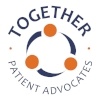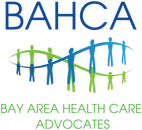 Given the COVID-19 pandemic and surge in hospitalizations, patients having surgery are largely not permitted to have anyone accompany them. This means that your personal (family member, friend) or professional advocate won’t be able to be with you in person. But the good news is that she can still advocate for you if you bring her into the room by phone or video. For ideas on how to virtually connect with your advocate, see my post, How to Create Long-Distance Advocate Partnerships.
Given the COVID-19 pandemic and surge in hospitalizations, patients having surgery are largely not permitted to have anyone accompany them. This means that your personal (family member, friend) or professional advocate won’t be able to be with you in person. But the good news is that she can still advocate for you if you bring her into the room by phone or video. For ideas on how to virtually connect with your advocate, see my post, How to Create Long-Distance Advocate Partnerships.
In this post I’ll explain the key moments of your surgical experience, why you’ll need your advocate for each one, and how she can support you. Because every advocate has developed her own advocacy procedures, your advocate’s key moments may be slightly different than mine. Ask your advocate how you will work together during your upcoming surgery.
Pre-Operation (Pre-op) Appointment
Before the day of surgery, your surgeon will schedule a pre-op appointment to ensure everything is medically ready for surgery, answer your questions, and review the surgical plan. Your advocate will take notes and make sure all of your questions are answered, and that you have a clear sense of what will happen on surgery day.
This is also a great day to pack your hospital "Go" bag. Suggestions for what to pack can be found in an earlier post.
Paperwork
Sign and date a HIPAA release form for the hospital at which you will have surgery to allow the hospital to speak with your advocate. Give a copy to your advocate. If you'd like your advocate to keep your family informed throughout the day (I highly recommend this as family will be very anxious waiting for you), tell her who you want her to communicate with in your family and exactly what information you want communicated. Consider asking your advocate to text your family members prior to the surgery day so that everyone has each other's numbers for ease of contact.
Take two copies of the HIPAA release with you the day of surgery. The hospital should only need one copy and should take this copy at registration. That said, it's helpful to offer your pre-op nurse a copy to to facilitate communication between your medical team and advocate. That way if the surgery runs long, the advocate can speak to the medical team taking care of you to find out what’s happening and let your family know.
Surgery Day Check-in
You will check-in at the reception desk and be taken to the pre-op admissions area. Tell the person at the pre-op admissions desk that you have an advocate. Give her your advocate’s HIPAA release form, which will include the advocate’s name and contact information. Let them know your advocate is your point person and should be contacted with any concerns throughout the day.
As you check in, remind yourself that if anytime during the day something doesn’t seem right or is confusing, you will call your advocate and get her involved. I keep my schedule flexible when I have a client in surgery to ensure I’m available when they need me.
Pre-op Nurse
From admissions, you will be taken to a room where you’ll change into a surgical gown and will be given a chair or gurney to sit on. Your pre-op nurse will verify your identify and why you are getting surgery. Call your advocate when the nurse comes in to review your medications and surgical plan and introduce your nurse and advocate. Emphasize that your medical team has permission to speak with your advocate and offer the additional copy of your HIPAA form to your nurse. Your advocate will listen to the information being reviewed to ensure everything is correct.
Generally, the pre-op and post-op nurses are different individuals and are in different areas of the surgical suite. As your pre-op nurse for the best way to have the post-op nurse remind you to call your advocate after surgery. See the After Surgery section below for more on that key moment.
Also, ask the nurse to let you know when the surgeon is about to arrive because that is the next key moment for you and your advocate.
Surgeon’s Visit
Call your advocate a few minutes before the surgeon is expected to visit you before surgery. The surgeon will review the surgical procedure and its risks. You will be asked to sign the consent form.
Having your advocate virtually in this meeting is important because she wants to establish with the surgeon that she is part of the team. Normally (without the pandemic), the advocate would be with you at this time and would be waiting in the waiting room during your surgery. The surgeon would follow a well-established routine in which she would meet with your advocate right after surgery. But with those waiting rooms now closed, if your surgeon doesn’t virtually meet your advocate before the surgery, she won’t know that she is to call her after surgery. This will leave your advocate, and thereby your family, not knowing how your surgery went, and if applicable, be aware of any concerns or problems. It also means if there is a complication during surgery, your advocate will be able to discuss this with the surgeon, ask additional questions and communicate clearly with your family.
Don’t go into surgery without having introduced your surgeon and advocate.
Anesthesiologist Check-in
When the anesthesiologist checks in with you, you may wish to include your advocate in this meeting also. Check with your advocate.
Recovery
You will be nauseous and groggy after surgery. You may not remember that you want to call your advocate. Anesthesia often causes amnesia for things you are told after surgery so it's critical that you have your advocate listen to instructions as well . You want the post-op nurse to remind you to call your advocate just in case you don’t remember needing to do so. In case you need help calling your advocate, remember that her contact information is on the HIPAA release form you gave the nurse.
Let your advocate know how you are feeling. If your needs are not being met, your advocate can help resolve post-op pain and/or nausea issues.
Your advocate can call your designated family members to let them know how you’re doing if you're not feeling up to making further calls.
Discharge
After a period of recovery, the nurse will determine you are ready to be discharged from the hospital. She will bring you your discharge paperwork. Your advocate should be involved in this discussion. You will still be groggy or in pain and won’t be able to attend to the information as fully as you would on a good day. You may not remember what was said because of the effects of anesthesia. You will need a second set of ears to hear all of the details included in the discharge orders. Your advocate can also ask questions about aspects of your care and recovery that may not be covered in the discharge orders.
Home
Talk to your advocate beforehand about what should trigger a call to her once you’re home. But remember, in an emergency, always call 911.
Post-op Visit
Your surgeon will check on your healing status. For more involved diagnoses, such as cancer, the surgeon will also discuss pathology results, treatment plan, and side effects of treatment plan. Your advocate will ask questions about aspects of your diagnoses or treatment that aren’t being covered. She can help make sure you understand the information being given to you, which is key to enabling you to make informed decisions that meet your goals. Your advocate is also going to be taking notes throughout the appointment. She will summarize them for your records and future reference. Studies show patients only remember 40% of what is said during a medical appointment and of that, only 50% is remembered correctly. When the diagnosis is frightening (e.g. cancer), many patients forget much of what is said because of the normal stress response.
Each of these key moments is an important part of your surgery experience. With proper planning, your advocate can work for you before, during, and after surgery.



.gif?width=200&name=NAHAC-Member-Badge200x112+(1).gif)


